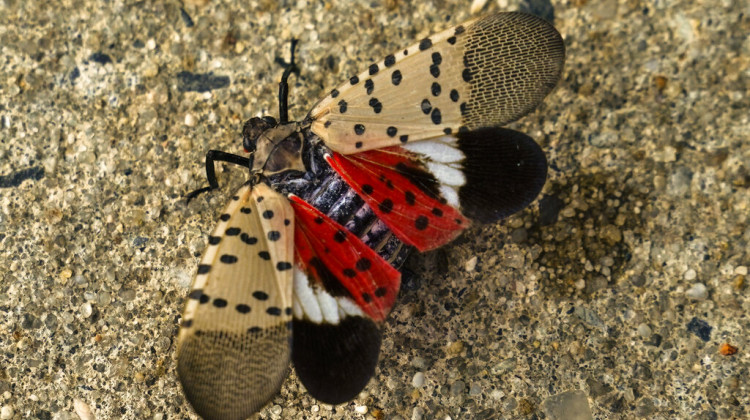An invasive insect that could affect Hoosier grape growers and honeybee producers has migrated to northern Indiana, one year after being first spotted in the state's southeastern corner.
Purdue University said Thursday that the spotted lanternfly was detected in July in Huntington County in northeastern Indiana. That comes a year after the pest was first reported in Indiana in Switzerland County, an Ohio River county in the state's far southeastern corner.
Infestations of the insect, which boasts spotted, bright red wings, have been reported in 13 states, mostly on the East Coast.
Purdue entomology professor Cliff Sadof said the swift migration of the insect in Indiana poses a significant agricultural threat to wine grape growers and honeybee and walnut tree producers.
While the insect feeds on over 100 different types of plants, he said it can reproduce only when feeding on walnut trees, grape vines or the tree of heaven.
Purdue experts said the insect feeds on wine grape vines and can either severely reduce the vines’ winter hardiness or kill the crop all together. Honeydew produced by the insects that bees later collect can also taint honey.
Both grape growers and beekeepers are advised to avoid moving equipment that could allow the insect to hitch a ride to other parts of Indiana.
The Indiana Department of Natural Resources asks Hoosiers to search for spotted lanternflie s and report any sightings, along with photographs, to DEPP@dnr.in.gov, or by calling 1-866-No-Exotic.
 DONATE
DONATE







 View More Programs
View More Programs

 Support WFYI. We can't do it without you.
Support WFYI. We can't do it without you.